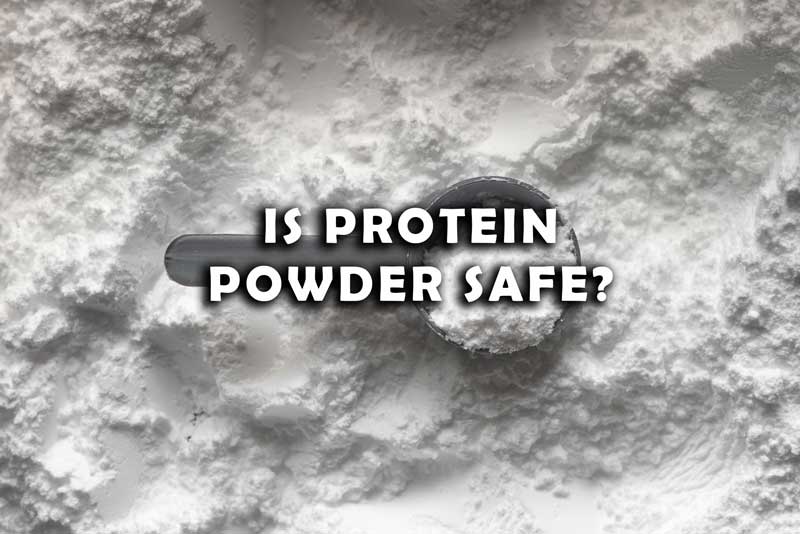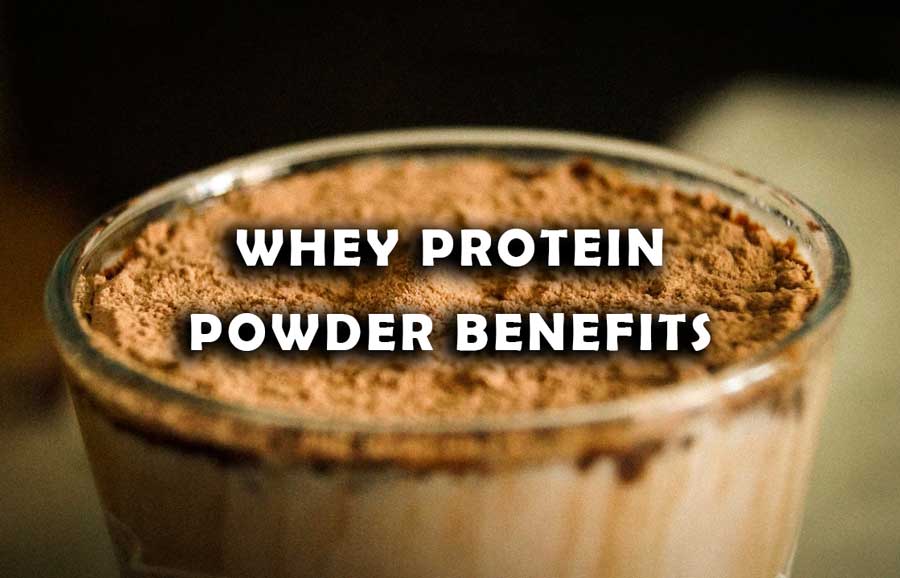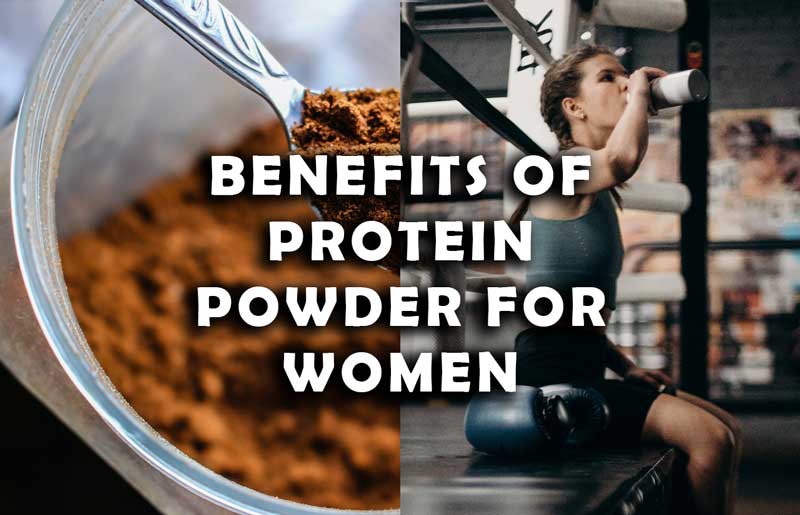Protein powder has become increasingly popular as a dietary supplement among athletes, fitness enthusiasts, and individuals who want to maintain a healthy lifestyle. Protein is essential for building and repairing tissues, supporting the immune system, and producing enzymes and hormones. However, some people might wonder if protein powder is safe to consume regularly.
Yes, protein powder is safe for everyone. But this can be conditional. This article explores the benefits and risks of protein powder and provides insights on how to use it safely and effectively.
Protein Powder in short
Protein powder is a dietary supplement that comes in various forms, including whey, casein, soy, egg, and plant-based protein. It’s usually available as a powder that can be mixed with water, milk, or other liquids to create a protein shake or smoothie.
Protein powder is marketed as a convenient and cost-effective way to increase protein intake. Especially for people who don’t consume enough protein through their diet. Or have increased protein needs due to physical activity or medical conditions.
The Benefits of Protein Powder
Protein powder has several potential benefits, including:
1. Muscle growth and repair
Protein is essential for building and repairing muscle tissues, which is the reason why protein powder is commonly used by athletes and bodybuilders to support muscle growth and recovery.
2. Weight management
Protein provides more satiating feeling than carbohydrates or fats, which means that it can help reduce appetite and promote weight loss or weight maintenance.
3. Recovery from injuries or surgeries
Protein is essential for wound healing and tissue repair. This is why it’s often recommended after surgeries or injuries to promote recovery.
4. Nutrient density
Protein powder is a concentrated source of protein. This can be beneficial for people who struggle to consume enough protein through their diet or have specific nutrient needs.
5. Convenience
Protein powder is easy to use and you can easily include it into various recipes and meals. This makes it a convenient option for people with busy lifestyles.
The Risks of Protein Powder
While protein powder has several potential benefits, it also carries some risks, including:
1. Digestive issues
Some people may experience digestive discomfort, such as bloating, gas, or diarrhoea, when consuming protein powder. All this can happen especially if they have lactose intolerance or allergies to certain types of protein.
2. Kidney damage
There is some concern that consuming high amounts of protein, especially from protein supplements, may put excessive strain on the kidneys. This can increase the risk of kidney damage or disease, especially in people with pre-existing kidney issues.
3. Dehydration
Protein requires water for digestion and utilization, which means that consuming high amounts of protein without enough fluids may lead to dehydration.
4. Contamination
Protein powders are not regulated by the FDA, which means that some products may contain harmful contaminants, such as heavy metals, pesticides, or bacteria, that can pose health risks.
5. Overconsumption
Consuming too much protein, especially from supplements, may lead to an excess of calories and nutrients, which can cause weight gain, nutrient imbalances, or other health issues.
How to Use Protein Powder Safely and Effectively
To minimize the risks and maximize the benefits of protein powder, consider these tips:
1. Choose high-quality & Safe Protein Powder
Look for protein powders that are certified by third-party organizations, such as NSF, Informed-Sport, or USP, to ensure that they are free from contaminants and meet quality standards.
2. Follow the recommended dosage
Check the label or consult with a healthcare professional to determine the appropriate amount of protein powder to consume based on your age, gender, weight, physical activity, and other factors.
3. Combine Protein Powder with a balanced diet
Protein powder should not replace whole foods in your diet but should be used as a supplement to meet your protein needs. Combine protein powder with a balanced diet that includes a variety of nutrient-dense foods, such as fruits, vegetables, whole grains, and healthy fats.
4. Drink enough fluids
Make sure to drink enough fluids, especially water, when consuming protein powder to support digestion, hydration, and utilization of protein.
5. Monitor your symptoms
Pay attention to any digestive discomfort, changes in urine color or frequency, or other symptoms that may indicate an adverse reaction to protein powder. In case you experience any issues, reduce or stop consuming protein powder and consult with a healthcare professional.
Is Protein powder safe? Key takeaways
Protein powder can be a safe and effective way to increase protein intake and support various health goals. However, it’s important to choose high-quality products, follow the recommended dosage, balance protein intake with other nutrients, and monitor your symptoms to use it safely and effectively. Consult with a healthcare professional if you have any concerns about consuming protein powder, especially if you have pre-existing medical conditions or take medications.
FAQs
1) Can protein powder help with weight loss?
Protein powder can help reduce appetite and promote weight loss or weight maintenance, but it should be combined with a balanced diet and regular physical activity.
2) Is plant-based protein powder better than animal-based protein powder?
It depends on personal preferences and nutritional needs. Plant-based protein powder can be a suitable option for vegans, vegetarians, or people with lactose intolerance or allergies to dairy. However, animal-based protein powder may provide more complete protein with all essential amino acids.
3) How often should I consume protein powder?
The frequency and amount of protein powder consumption depend on individual factors, such as age, gender, weight, physical activity, and dietary habits. Consult with a healthcare professional to determine the appropriate dosage and frequency for your needs.
4) Is it safe to consume protein powder during pregnancy?
Consult with a healthcare professional before consuming protein powder during pregnancy or breastfeeding, as the safety and dosage may vary depending on individual factors and medical history.
5) Can protein powder replace meals?
Protein powder should not replace whole foods in your diet but you should use it as a supplement to meet your protein needs. It’s important to consume a balanced diet that includes a variety of nutrient-dense foods to ensure adequate intake of all essential nutrients.





